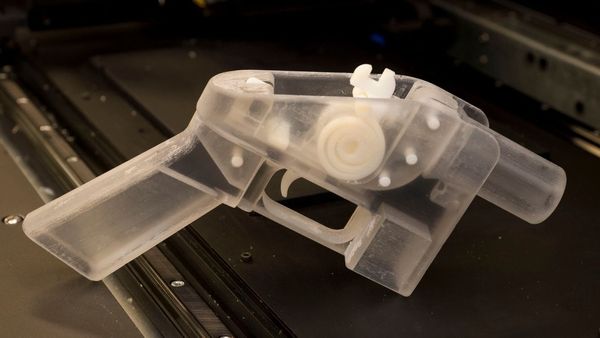
After two-and-a-half months, more than 50 witnesses and a media frenzy that had journalists sprinting through the streets of Morwell to make the verdict in time, the final moment of Erin Patterson’s trial arrived in silence.
At 2.15pm on Monday at Latrobe Valley law courts in Morwell, about a two-hour drive from Melbourne, courtroom four was packed and humming with tension.
Justice Christopher Beale, who had presided over the supreme court trial, instructed everyone to remain silent during the hearing. He didn’t need to. You could hear a pin drop.
Before the judge entered, Patterson sat between two security guards. She closed her eyes. Her chest rose and fell with slow, deliberate breaths.
But when the doors opened and the judge and jury filed in, her eyes snapped open, focused, unmoving.
One by one, the charges were read aloud.
Patterson was found guilty of the attempted murder of Pastor Ian Wilkinson, who fell critically ill after a lunch at Patterson’s Leongatha home on 29 July 2023. He was the only survivor.
He had eaten a beef wellington laced with deadly death cap mushrooms. He spent seven weeks in hospital recovering. He told the trial the plates his and the other three lunch guests’ meals were served on were a different colour to Patterson’s, testimony that the defence disputed.
Patterson was also guilty of the murder of Heather Wilkinson, Ian’s wife and her estranged husband Simon’s aunt.
Guilty of the murder of Gayle Patterson, Simon’s mother.
Guilty of the murder of Donald Patterson, Simon’s father.
With each guilty verdict – Patterson looked straight at the jury comprised of seven men and five women. She didn’t flinch. Her face was unreadable.
After a week in the witness dock, where she was prone to emotional outbursts, this time, there were no tears.
There were no members of either the Wilkinson or Patterson families in the courtroom to hear the verdict. Just one friend of Erin Patterson’s, quietly wiping away tears.
It was 1.38pm, when the supreme court’s email hit journalists’ inboxes: the jury had reached their verdicts.
It was unexpected – most reporters had stepped out for lunch at the same time the jury had done every day during the trial. They raced out of cafes across the city, leaving their meals uneaten and frantically calling their editors.
The trial was the subject of feverish media attention which only escalated once the jury retired.
Outside the automatic doors of the Latrobe Valley law courts, a circus formed – shade tents, fold-out chairs, gorilla carts filled with cables and tripods.
All told, there were close to 100 reporters, photographers, camera operators, podcasters, documentary crews and screenwriters on hand.
Only a small number of them were able to make it into court four, the room where the verdict was handed down.
Members of the public keen to be in the room got to court early, went upstairs, and left their bags and jackets in an orderly line outside the door to the court room.
Morwell coursed with an odd mix of suspense and boredom in the days since 30 June, when the jury retired to deliberate.
Lawyers for the defence and prosecution were seen around town, unrobed and unburdened, waiting like everyone else.
One of the two cafes within a block of the court had a record day for takings and covers on 1 July, the day after Beale finished his charge to the jury.
Towards the end of those 365-pages of directions, he stressed to the 12-member jury the importance of them reaching a unanimous verdict, though stressed they could get to that verdict however they wished.
They were sequestered, transported to court every morning, Monday to Saturday, and deliberated in the jury room, before being taken back to a hotel in the late afternoon.
As Beale half jokingly quipped, they were “locked up.” And when they finally emerged, Patterson was guilty.
There was no outrage. No tears. No court room drama.
Just silence.
And the weight of three lives taken.







